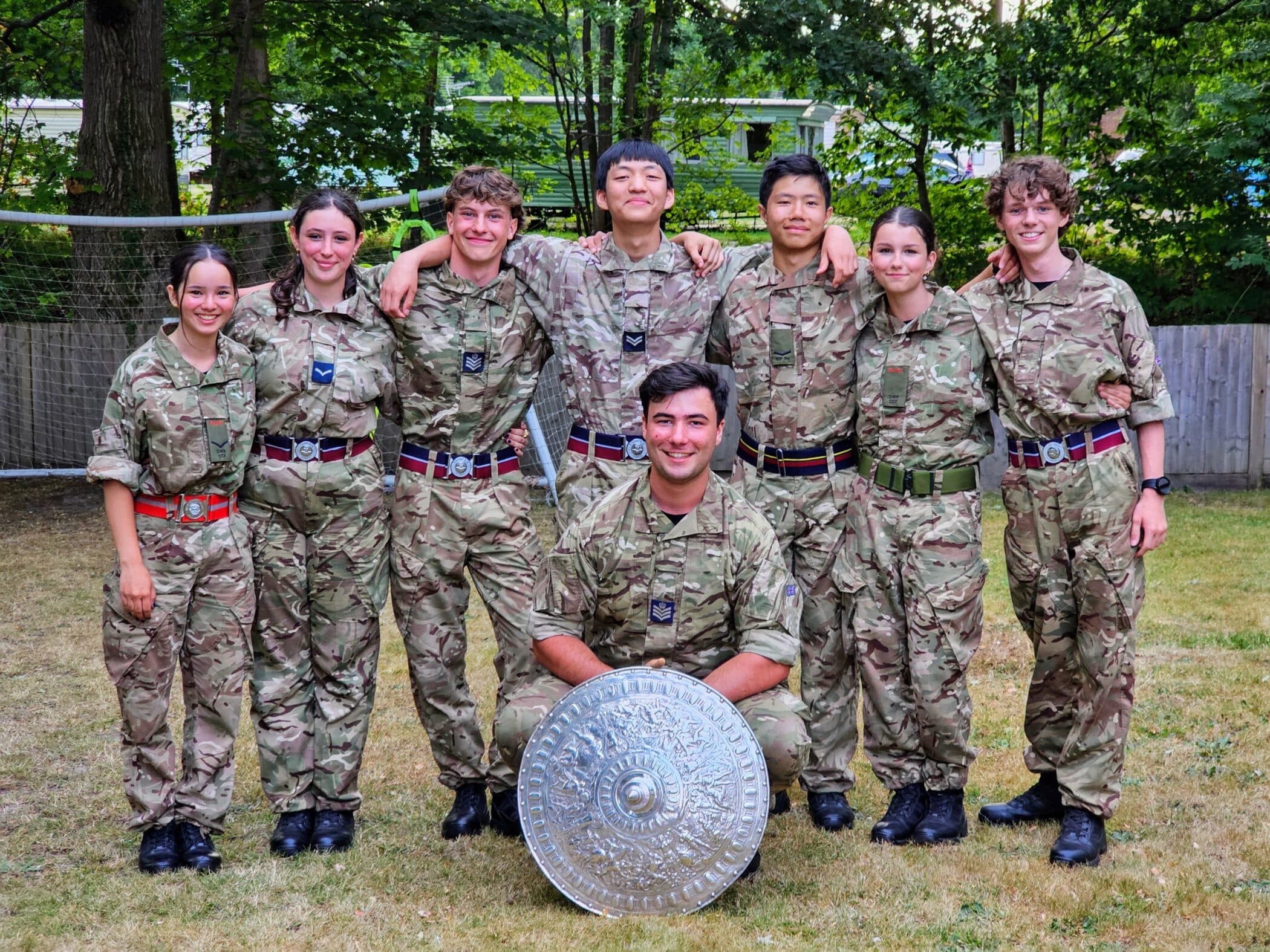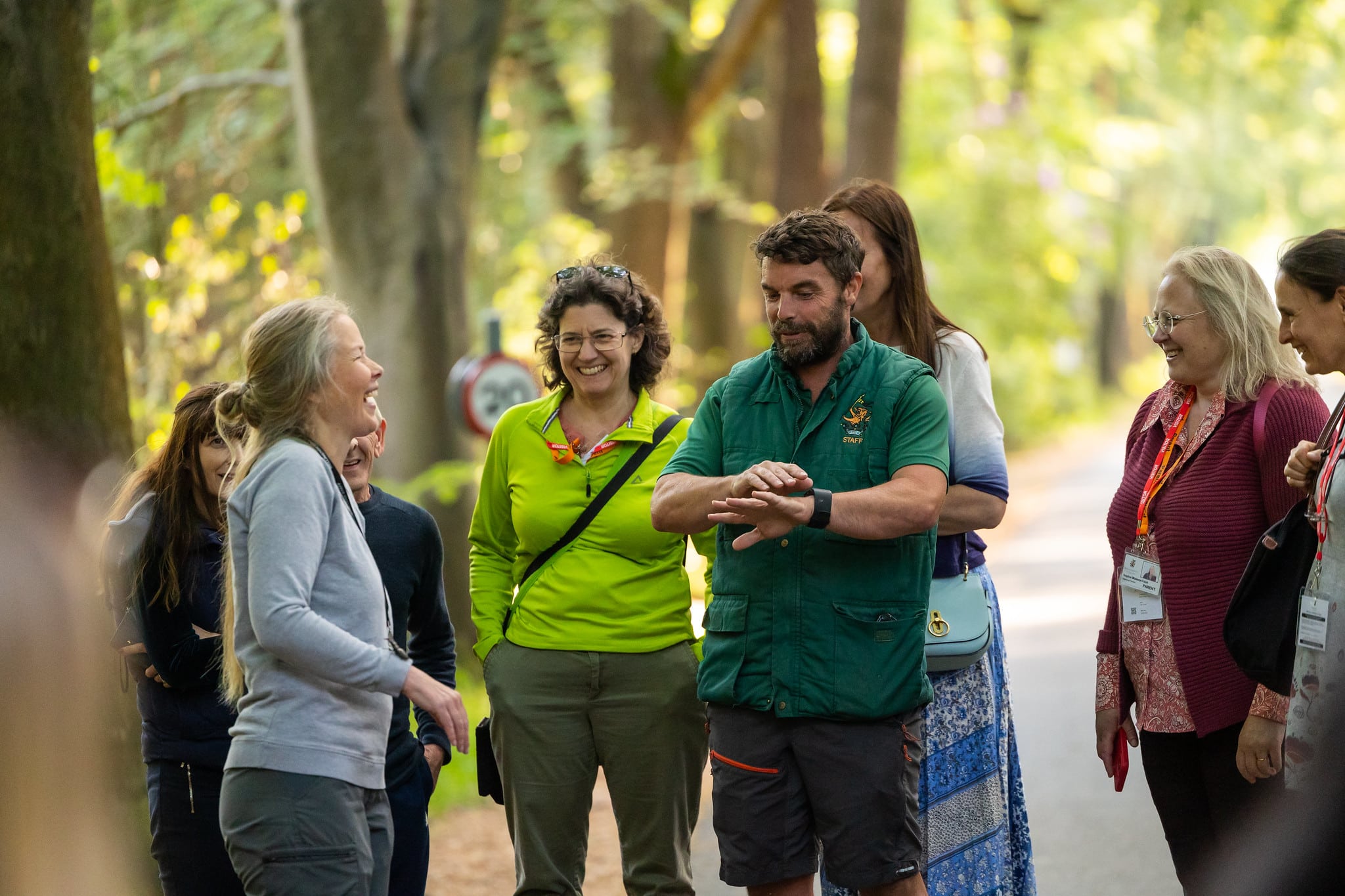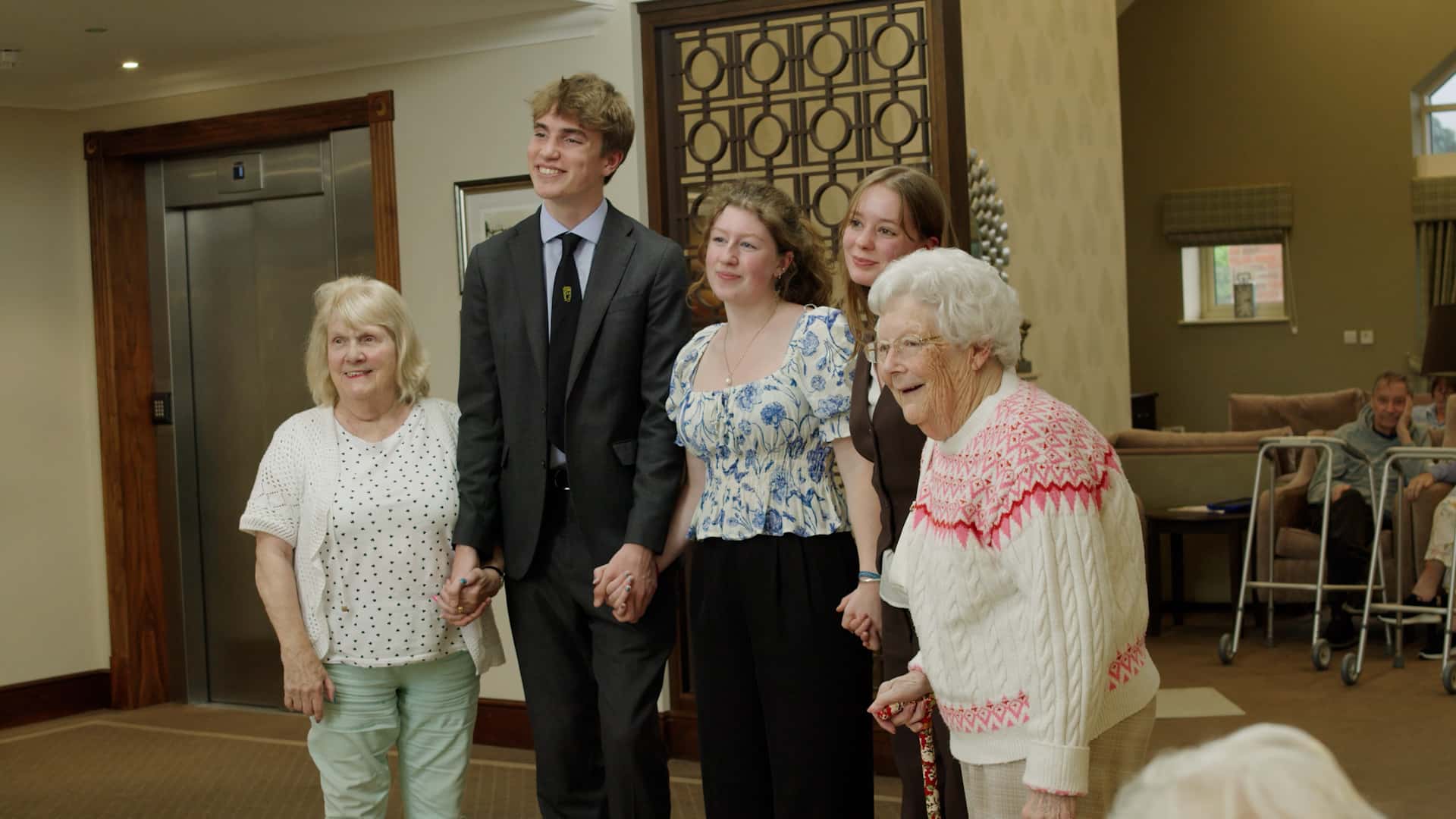
Parents and members of the public toured Wellington’s gardens, grounds and nature reserve on a warm evening last week. The Wildlife Walking Tour is a chance to be guided around the school’s huge 440-acre estate and get an insight into the delights and challenges of maintaining its beauty while conserving the variety of wonderful wildlife.
Wildlife Trust Learning Officer and Knepp Safari Guide, Kat Dahl, took groups around the College’s nature reserve and protected Site of Special Scientific Interest. This area of mixed woodland, heathland and peat bog is rich in biodiversity because its variety of habitats can support a wide range of species. Kat explained how we have lost 80% of British heathland in the last 200 years and 94% of British peat bog in the last 100 years which makes it even more important that we carefully maintain this site.
There are several nationally scarce species that live in, or visit, the site including nightjars that arrive from Africa each May to hunt and display from the tall trees and nest on the ground among the flowering heather and gorse. Wellington is also one of only two places in the UK to have both silver-studded blue and purple emperor butterflies in such close proximity to each other. Kat explained the fascinating symbiotic relationship between the silver-studded blue and Lasius niger ants whereby the ants transport the butterfly caterpillars into their nests and ‘milk’ them for a sugary secretion while keeping them safe from predators until they pupate and emerge. Who knew there were so many rare and fascinating processes at work just a few minutes’ walk from the College classrooms.
As the first group walked out of the nature reserve, deep in discussion about the grass snakes, adders, common lizards and slow worms that live among the heathland, they got an unexpected surprise when Kat suddenly reached down to pick up a huge stag beetle that had wandered onto the path. She assured everyone it hadn’t been planted there for added effect and the group were able to take a good look as it rested happily on her sleeve.
For the second part of the tour, Wellington College Grounds and Gardens Manger, Mark Dodd, took the groups on a tour of the main estate grounds, which are not usually open to the general public. Mark heads up a team of 17 team members who are responsible for different parts of the estate, including the golf course. Each gardener has a high degree of freedom over their respective area which has resulted in a pleasing blend of different styles. Mark began his tour at the G.W.A. Performing Arts Centre, explaining how much soil and sand had had to be removed for its construction and how he and his team have meticulously planted heather, grasses, dwarf pines, holly trees and birches in the garden in front of it with an accessible serpentine path winding down to the arts centre.
Then it was on to the formal South Front where graduation and the Festival of Education take place each year. The lawn was laser levelled three years ago and the top layer of dead grass is removed at the end of the busy Summer Term each year in order to be reseeded.
Mark’s tour finished with the College Garden and Living Legacy Garden. For use by teachers and their families, The College Garden has a spectacular 260-year-old tulip tree which was just coming into flower during the tour. The tulip tree has one of Wellington’s 140 nest boxes attached to it, some of which contain cameras so that staff and pupils can keep an eye on hatching birds. The Living Legacy Garden was a show garden at Chelsea Flower Show in 2015 and was designed to commemorate the 200th anniversary of the Battle of Waterloo. The tour spent a long time taking in all of the different elements that interact to tell a powerful story in this special garden including the ancient willow tree, blackened earth, square clipped beech trees, meadow plantings, Duke of Wellington statue, winter garden and young saplings. Everyone on the tour was struck by the peaceful atmosphere of calm reflection here.
At the end of the tour, guests were invited to stay for drinks and the chance to ask Mark and Kat more questions about Wellington’s wildlife and vast grounds.
We are running another public summer tour of the College and gardens on 15 July. More information can be found here.









